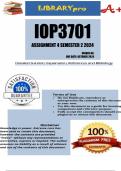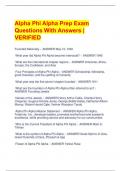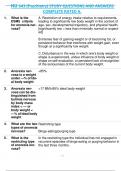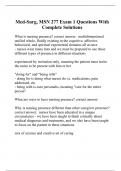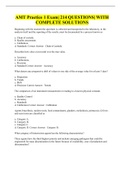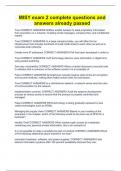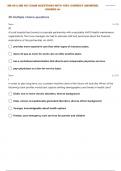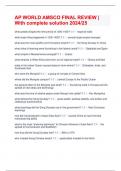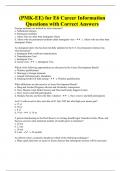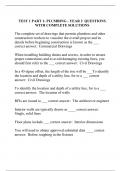Exam (elaborations)
IOP3701 Assignment 4 (QUESTIONS & ANSWERS) Semester 2 2024
- Course
- Institution
- Book
IOP3701 Assignment 4 Full Solutions Semester 2 2024 ;100 % TRUSTED workings, Expert Solved, Explanations and Solutions. For assistance call or W.h.a.t.s.a.p.p us on ...(.+.2.5.4.7.7.9.5.4.0.1.3.2)........... You are a registered psychometrist working at a university counselling centre. The centre ...
[Show more]
